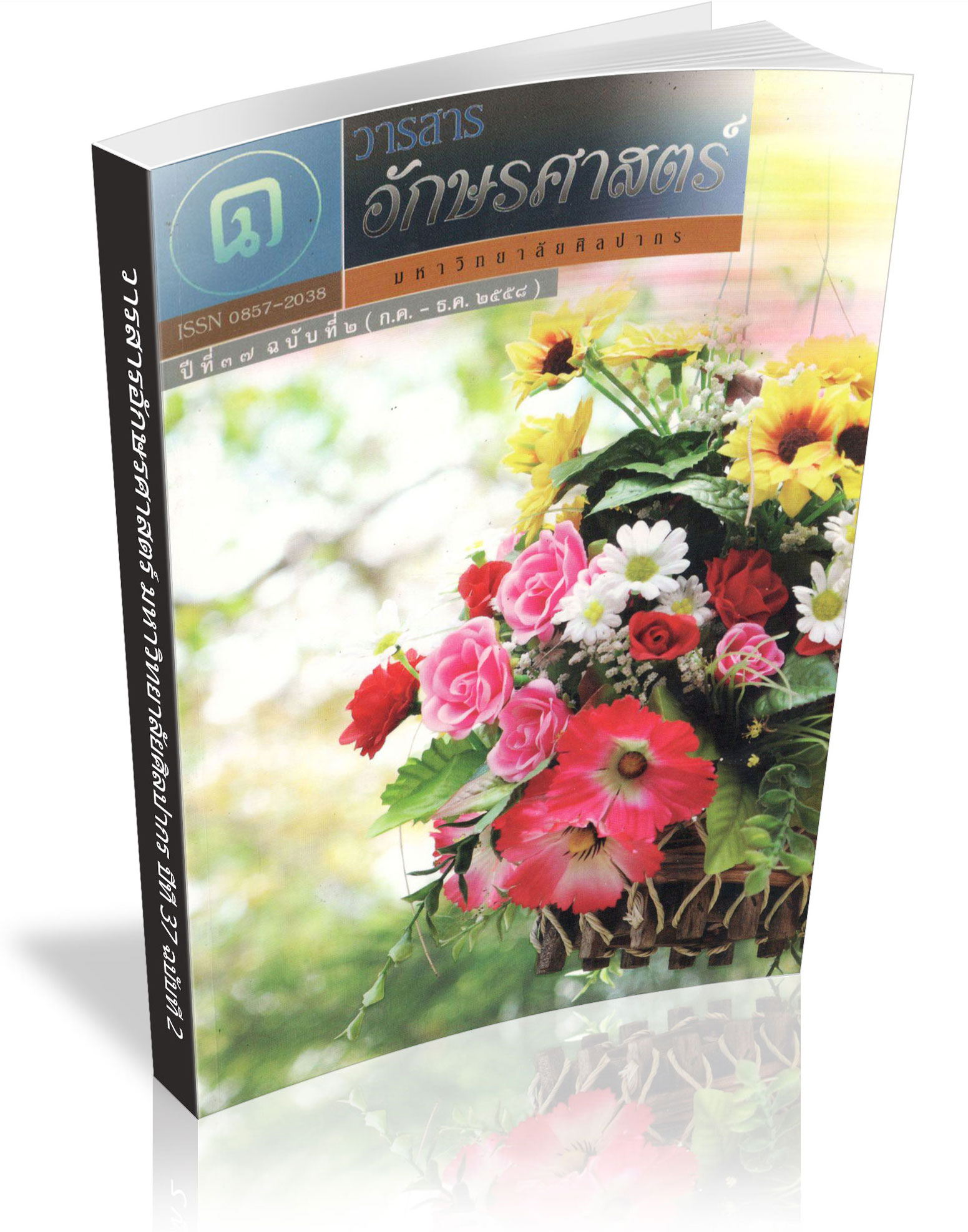Humanities : Problems and Challenge in the Study of This Discipline
Keywords:
Humanities, value, education, AnthropologyAbstract
The term “Humanities” has wide and equivocal meanings. It may imply a systematic discipline demonstrated in various subject matters or a way of thought. This article aims to study “Humanities” in terms of a way of thought than subject matters. The humanistic way of thought has "feeling” as its ground in opening a dimension for knowledge linked to reality, having “value” as its content of study, and having “humanity” as its ideal end. Given this ideal end, this article tries to explore the humanistic framework within which the concept of humanity is developed and understood in comparison to that of anthropological framework. The strong points of humanistic way of thought are round circumspection and freely rational critique. The weak points are framelessness which easily leads to subjective evaluation. The value derived from such evaluation may sound less reliable than facts discovered by scientific way of thought. Nevertheless, the power of humanistic way of thought can promote human autonomy because through it one will always learn how to make rational critiques and cultivate ethical conducts through self-criticism.
Downloads
References
เจตนา นาควัชระ. วิกฤตการณ์ของมนุษยศาสตร์. กรุงเทพฯ : สำนักงานกองทุนสนับสนุนการวิจัย, ๒๕๓๘.
ชัชชัย คุ้มทวีพร. “การศึกษาเน้นพัฒนาการ : สู่การเรียนรู้ที่แท้จริง.” วารสารมนุษยศาสตร์และสังคมศาสตร์ มหาวิทยาลัยรังสิต ปีที่ ๘ ฉบับที่ ๑๔ (๒๕๕๖) : ๒๔-๔๗.
Cooper, David E., Smith, Richard, and Dickerson, Adam B. Fifty Major Thinkers on Education. Ed. Palmer, Joy A. London : Routledge, 2001.
Heidegger, Martin. Being and Time. Trans. Macquarrie, John and Robinson, Edward. New York : HarperCollins, 2008.
Kant, Immanuel. Education. Michigan : Ann Arbor Paperbacks, 1960.
Downloads
Published
How to Cite
Issue
Section
License
ผู้เขียนบทความต้องยินยอมในข้อกำหนดต่าง ๆ ของวารสารก่อนส่งบทความตีพิมพ์



